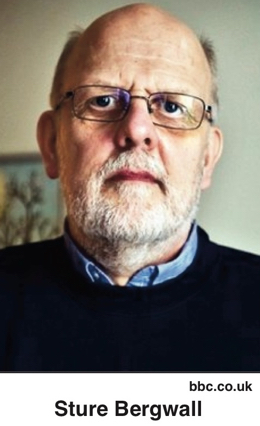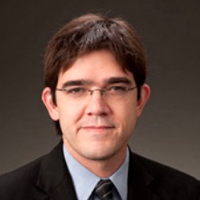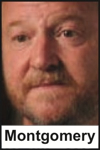Rascals case in brief
In the beginning, in 1989, more than 90 children at the Little Rascals Day Care Center in Edenton, North Carolina, accused a total of 20 adults with 429 instances of sexual abuse over a three-year period. It may have all begun with one parent’s complaint about punishment given her child.
Among the alleged perpetrators: the sheriff and mayor. But prosecutors would charge only Robin Byrum, Darlene Harris, Elizabeth “Betsy” Kelly, Robert “Bob” Kelly, Willard Scott Privott, Shelley Stone and Dawn Wilson – the Edenton 7.
Along with sodomy and beatings, allegations included a baby killed with a handgun, a child being hung upside down from a tree and being set on fire and countless other fantastic incidents involving spaceships, hot air balloons, pirate ships and trained sharks.
By the time prosecutors dropped the last charges in 1997, Little Rascals had become North Carolina’s longest and most costly criminal trial. Prosecutors kept defendants jailed in hopes at least one would turn against their supposed co-conspirators. Remarkably, none did. Another shameful record: Five defendants had to wait longer to face their accusers in court than anyone else in North Carolina history.
Between 1991 and 1997, Ofra Bikel produced three extraordinary episodes on the Little Rascals case for the PBS series “Frontline.” Although “Innocence Lost” did not deter prosecutors, it exposed their tactics and fostered nationwide skepticism and dismay.
With each passing year, the absurdity of the Little Rascals charges has become more obvious. But no admission of error has ever come from prosecutors, police, interviewers or parents. This site is devoted to the issues raised by this case.
On Facebook
Click for earlier Facebook posts archived on this site
Click to go to
Today’s random selection from the Little Rascals Day Care archives….
Click for earlier Facebook posts archived on this site
Click to go to
Today’s random selection from the Little Rascals Day Care archives….
Can Edenton squeeze in one more historical marker?
 Nov. 27, 2014
Nov. 27, 2014
“Of the dozen or so historical markers clustered in the town of Edenton, only one – recognizing novelist Inglis Fletcher – postdates the 1800s.
“The North Carolina Highway Historical Marker Committee now has the opportunity, 25 years after the first arrest in the Little Rascals case, to add to that number a 20th Century event inarguably significant in the legal and social history of not just North Carolina but also the nation.”
– From my application proposing “history on a stick” recognition for the Little Rascals Day Care case
The marker committee, composed of historians from four-year colleges across the state, will meet in December to decide which pending applications meet its criteria.
Sweden examines its mistakes – why doesn’t N.C.?
 Sept. 29, 2015
Sept. 29, 2015
“Thomas Quick was the name adopted by Swedish petty criminal and drug addict Sture Bergwall, who under ‘recovered memory’ therapy, confessed to raping, killing and even eating more than 30 victims (during the 1970s and ’80s).
“These were supposedly reenactments of ‘recovered memories of sexual abuse’ he had experienced as a child.
“Extraordinarily compelling in the dock as a witness to his own ‘crimes’ (which he had never committed), he was convicted of eight murders. He had trawled newspapers for unsolved killings and convinced the Swedish police that he was responsible – even though he never led them to a single body.
“In 2008, his ‘confessions’ were shown to be untrue and by 2013 the last of his convictions was overturned. The Swedish government has ordered an inquiry into this devastating failure of its justice system. There will be lessons in it for our own (British) authorities.”
– From “Is the therapy that brings out false memories behind VIP abuse claims?” by Dominic Lawson in the Daily Mail (Sept. 20)
How about that – a government that wants to examine “the devastating failure of its justice system”! If the State of North Carolina ever felt such an urge, I think I could come up with a case or two that meet that description….
This time, will NC Bar tell DAs to play fair?

cheshireparker.com
Brad Bannon
April 20, 2016
“‘If prosecutors have an ethical duty to avoid wrongful convictions, then they should have some sort of ethical duty to remedy wrongful convictions,’ said attorney Brad Bannon of the North Carolina Bar’s ethics committee.
“He wants North Carolina to adopt a rule recommended by the American Bar Association, requiring prosecutors to come forward if they find ‘new, credible and material evidence’ that an innocent person is serving time. Thirteen states have adopted the post-conviction rule. North Carolina isn’t among them.
“The State Bar rejected the rule several years ago but recently appointed a committee to reconsider….”
– From “Rule targets prosecutors who don’t reveal innocence evidence” by Martha Waggoner of the Associated Press (April 16)
Given prosecutors’ disproportionate influence on the state bar, to even “reconsider” the disclosure rule suggests the recent stream of unbecoming publicity hasn’t gone unnoticed.
![]()
N.C. law stacked deck against defendants
Oct. 17, 2011
The two largest ritual-abuse day-care cases – Little Rascals in Edenton and McMartin in California – bore many similarities but McMartin resulted in not a single conviction.
 I asked Mark Montgomery, who in 1995 successfully argued Bob Kelly’s case before the North Carolina Court of Appeals, why that might have been:
I asked Mark Montgomery, who in 1995 successfully argued Bob Kelly’s case before the North Carolina Court of Appeals, why that might have been:
“Each state has its own criminal laws, rules of procedure and evidence, etc. … Several features of the law in North Carolina gave prosecutors an advantage.
“First, the prosecution interviewed all the children attending Little Rascals Day Care. Most said they had seen no abuse. The law allowed the prosecution to withhold those interviews from the defense. And the defense was not allowed to interview the children. So all the jury heard were the stories of the 12 children who were the subject of indictments.
“Second, the law allowed the state’s expert witnesses to testify that they believed the children’s claims.
“Third, the defense was not allowed to conduct its own physical or psychological examinations of the children.
“Fourth, North Carolina had (and has) very liberal rules for the admission of hearsay by children in these cases. Almost anything a child says out of court can be used by the jury as substantive evidence of guilt. An effective prosecution strategy was to enlist the parents to elicit allegations of abuse. For months, parents, who were told their children had been abused, pleaded with their children to ‘disclose.’ Some eventually did. The prosecution then called the parents as witnesses to testify to what their children said, even if the children themselves did not testify.”











0 CommentsComment on Facebook